US presence in Syria behind resurgence of terror; Israel ‘biggest beneficiary’ of insecurity: Iran
Iran's Foreign Ministry says lingering and illegal American military presence in Syria is the main reason behind persistence of terrorism in the Arab country, describing the Israeli regime as the main beneficiary of regional insecurity.
“The American military presence in Syria amounts to violation of the Arab country’s clear principles and laws, and continuation of terrorists’ presence there is down to the United States’ presence in the country,” ministry spokesman Esmaeil Baghaei said during a press conference on Monday.
He addressed underway foreign-backed efforts at enabling resurgence of terrorism in Syria, saying neither the development nor the Daesh Takfiri terror group had ever posed a threat to the US and its interests.
Baghaei asked, “If the goal sought by the American military presence in Syria is fighting [the Takfiri terrorist group] Daesh, what is the group [still] doing there?”
Washington and scores of its allies invaded the Arab country, besides rolling into neighboring Iraq as part of a sizable coalition in 2014 under the pretext of uprooting the terrorist outfit.
The coalition, however, retains its presence in the countries, although Damascus, Baghdad, and their allies defeated the group in 2017, reducing it to sporadic remnants and sleeper cells.
'Daesh never a threat to America'
Baghaei also asked why the American military forces had fallen short of stemming the operations of Hayat Tahrir al-Sham (HTS), Daesh’s fellow Takfiri terrorist group, which is seeking to stage a comeback in the Arab country.
The official went on to describe the Israeli regime as the main party drawing benefit from insecurity in Syria and the rest of the West Asia region.
Over the past 14 months, the regime has escalated its attacks against Syria with the goal of undermining the country’s defenses, he said, adding that the regime’s ongoing war of genocide on the Gaza Strip and its more than a year of intensified deadly attacks against Lebanon also paved the way for terror groups’ preparing themselves across Syria’s different areas.
Israel's support for Takfiri terrorism
Baghaei also said the history of the HTS’ terrorist operations bore witness to the Israeli regime’s support for the group towards weakening Syria, the region’s resistance factions, and sowing division and sedition among the regional Muslim countries.
“It was by no accident that the terrorists became active right after [realization of] a ceasefire in Lebanon,” he said, pointing to implementation of a recent truce deal between the Israeli regime and Lebanon’s Hezbollah resistance movement.
“The terrorist groups’ history and their relation to the Zionist regime take us to the conclusion that their resurgence has been no accident.”
The official was referring to reports of arms support by the regime for Takfiri terror groups across the region, and its allowing the terrorists to escape into Syria’s Tel Aviv-occupied Golan Heights from the military operations that have been staged by Syria and its allies.
“This time around, however, the countries of the region are aware of this issue,” the spokesman said, pointing to Tel Aviv’s ongoing support for regional terrorism.
“All of the region’s Muslim countries and other nations should take this into account that the recent developments [in Syria] have been the work of the common enemy of security and instability, namely the Zionist regime.”
Regional cooperation against terrorism
Baghaei, meanwhile, noted that all the regional countries had come to the conclusion that whatever instance of insecurity and expansion of terrorism in Syria would not stay limited to the Arab country.
“This common concern prompts neighboring countries to double their efforts at fighting terrorism.”
Pointing to Araghchi’s recent trip to Syria, the spokesman said the visit served to communicate Iran’s message of ongoing support for the country as well as to update the Islamic Republic concerning the latest developments there.
“We think that, on the diplomatic level, our duty as well as the duty of other countries is to take measures towards mobilizing the international community to act towards fighting terrorism,” he said, adding that the top diplomat’s trip to Syria as well as an ongoing visit to Turkey served the purpose.
Baghaei described Turkey as an important neighbor for Syria that played a key role in the Astana process and had served a beneficial role in reducing tensions in various areas across the Arab country.
‘Iran’s advisory presence in Syria based on Damascus request’
Elsewhere in his remarks, the spokesman pointed to Iran’s continued advisory presence in Syria, noting how the Islamic Republic began assisting the country in the face of foreign-backed terrorism at Damascus’ request years ago.
“Our advisors continue to maintain a presence there,” he said, adding, “Therefore, Iran’s presence in Syria is not a new development. It has been established there based on Syria’s request and opinion, and continues to last.”
‘Astana peace process still alive’
Baghaei also addressed the Astana peace process that was initiated by Iran, Russia, and Turkey in January 2017 towards helping resolution of conflict in Syria through involvement of the opposing sides.
He said standing commitments to the process were susceptible to violation like other international obligations, but such contravention did not translate into elimination or undermining of the process.
The process had to be rather applied towards remedying the violations that it might have suffered, the official noted, adding that he hoped that Foreign Minister Abbas Araghchi’s recent trip to Turkey and ongoing contacts with Russian officials would help reinvigorate the process.
‘Geneva meeting not limited to nuclear issue’
Baghaei also pointed to a recent meeting between Iran and the UK, France, and Germany that took place in Geneva on Friday, saying the event did not solely revolve around the issue of the Islamic Republic’s nuclear energy program.
“We brought up our various concerns during the talks with the European side,” he said.
The official reiterated Iran’s readiness for interaction with other parties on various issues in line with the rights and commitments that the Islamic Republic is assigned based on international laws.
He further underlined that the country’s nuclear program “will remain peaceful [in nature] as per [the relevant] fatwa (religious decree) that has been issued by Leader of the Islamic Revolution Ayatollah Seyyed Ali Khamenei as well as [relevant] calculations that have taken place based on the issue of national security.”
VIDEO | Syrian families demand release of detained soldiers
IRGC Aerospace Force launches massive drills near Natanz nuclear facility
N Korea successfully tests new hypersonic ballistic missile to ‘deter rivals’
VIDEO | Deadly shooting near Kedumim junction in West Bank
Protesters in Sydney decry genocidal war in Gaza
UN raises concern over rising hypothermic deaths among Gaza infants as 8th baby dies
Humans of Gaza: Mohammad Hijazi, journalist and poet who chronicled life amid genocide
VIDEO | Night of inferno: Israeli settlers storm West Bank villages, torch homes, vehicles


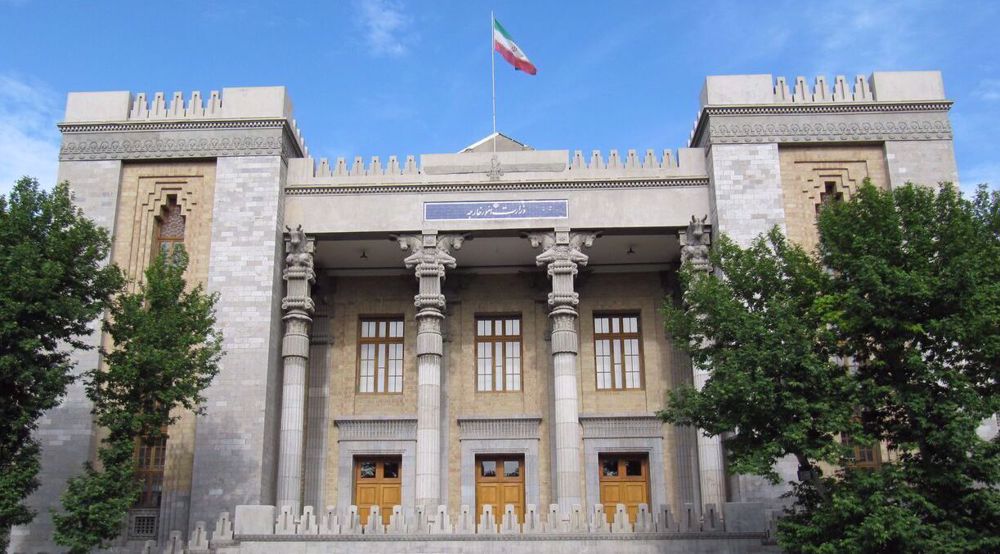

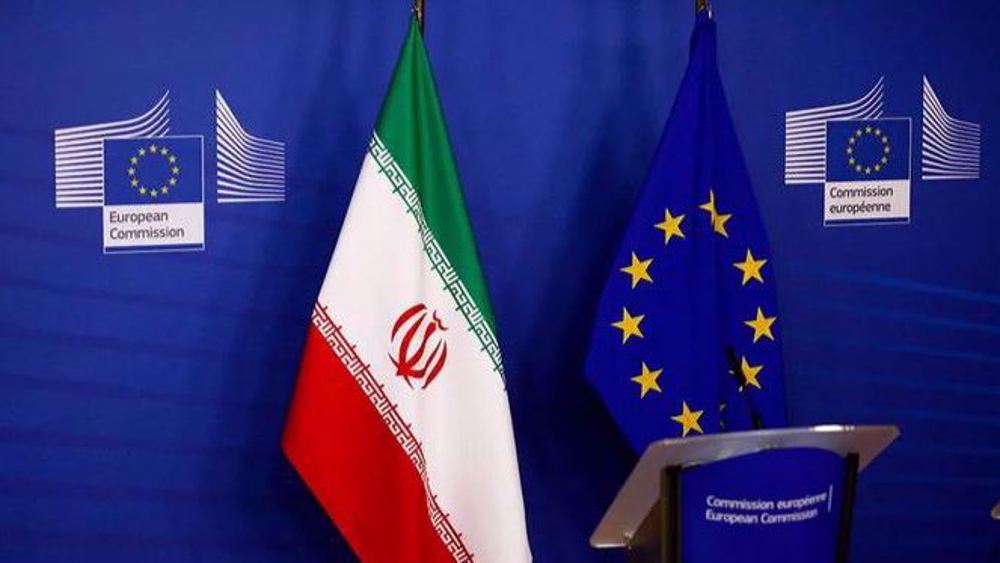
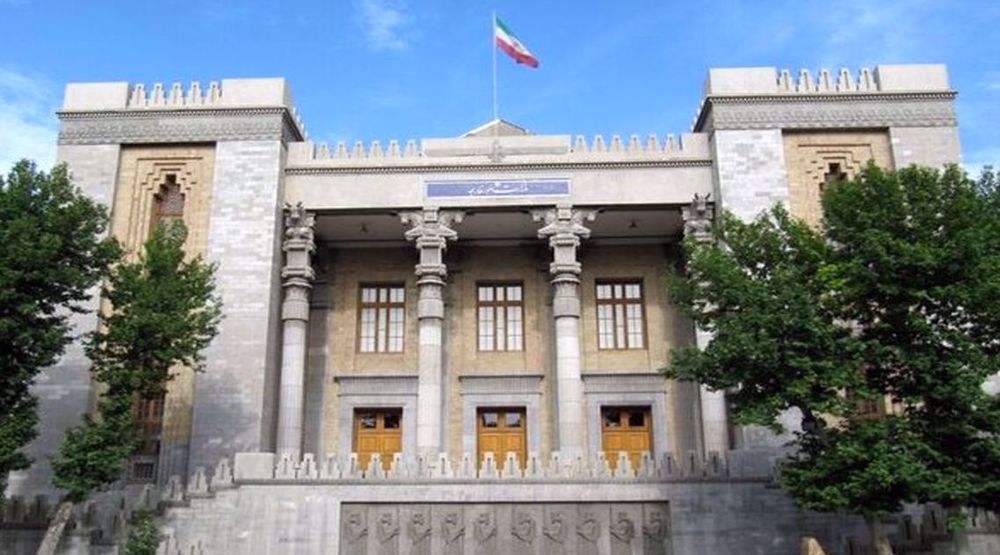
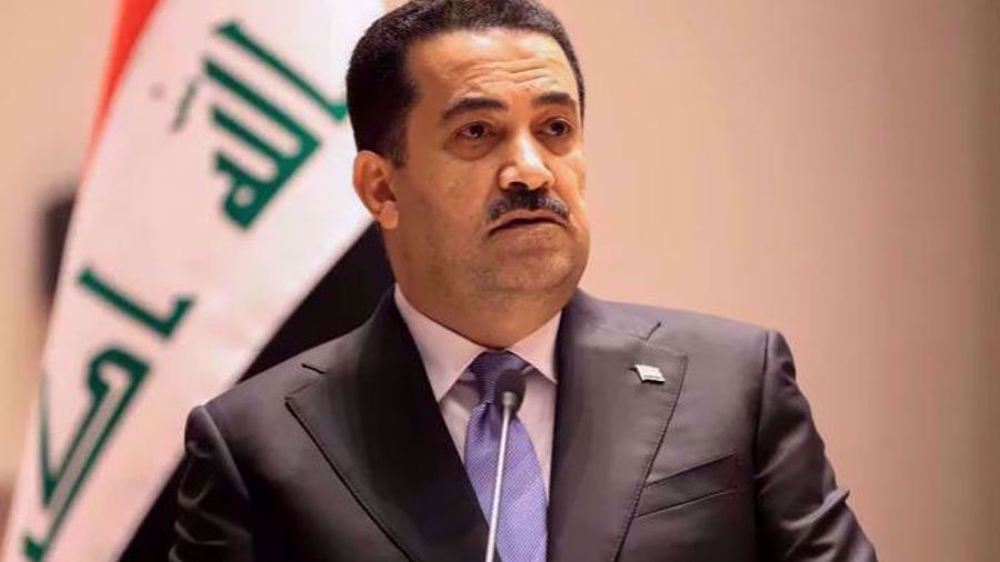
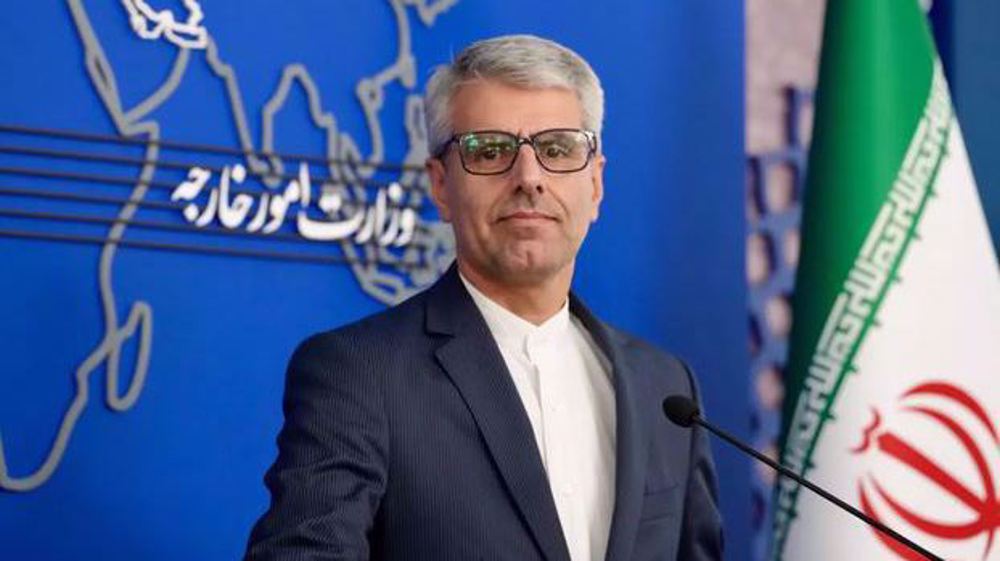



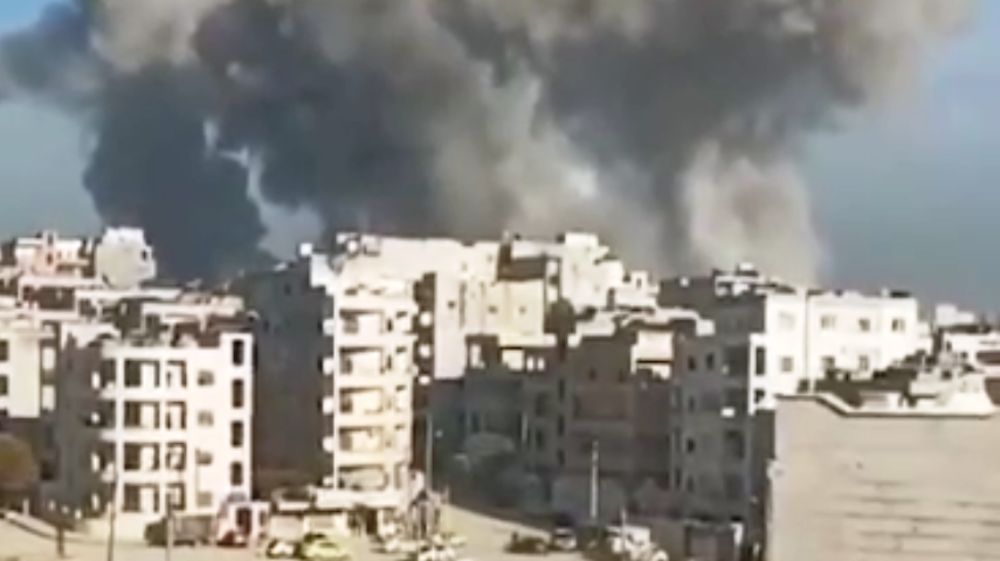
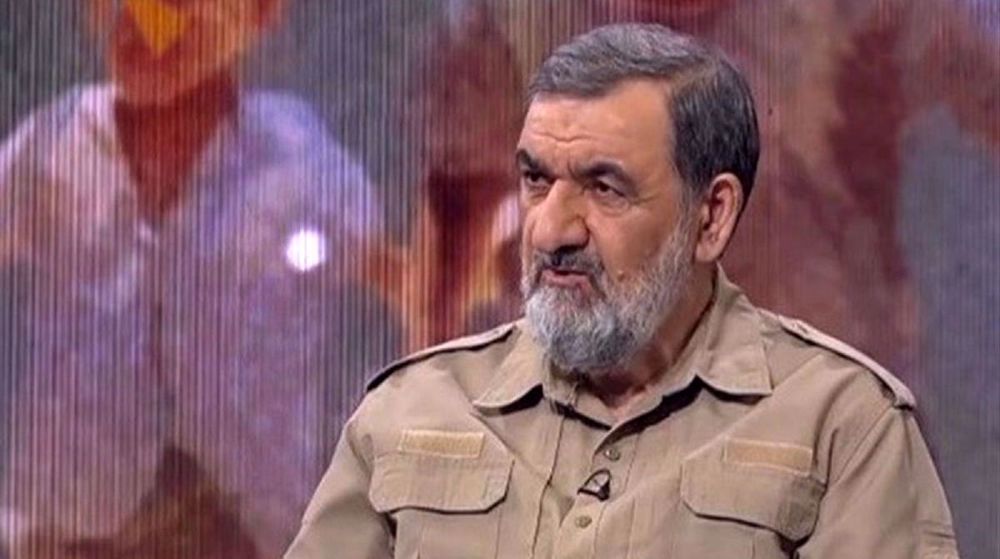
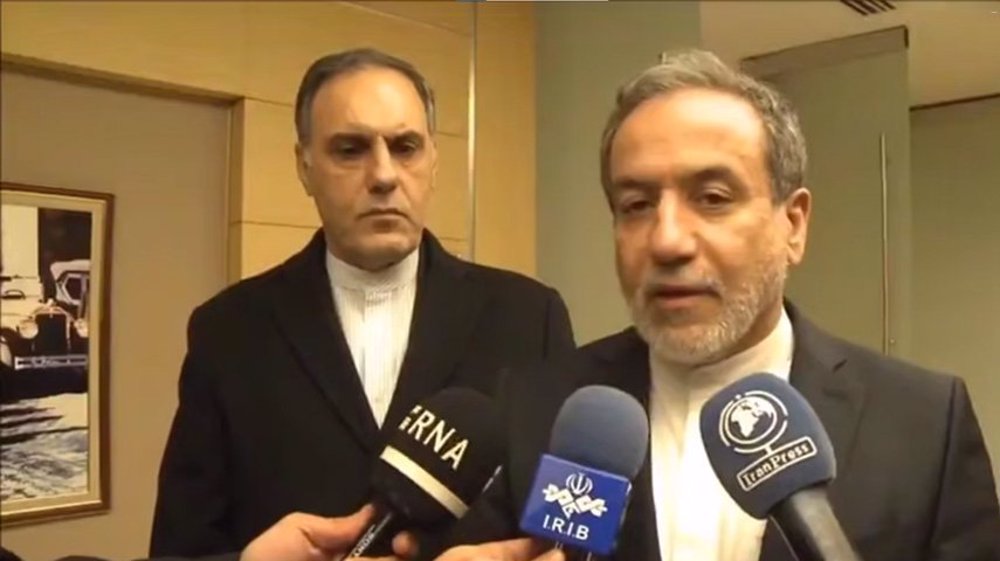

 This makes it easy to access the Press TV website
This makes it easy to access the Press TV website